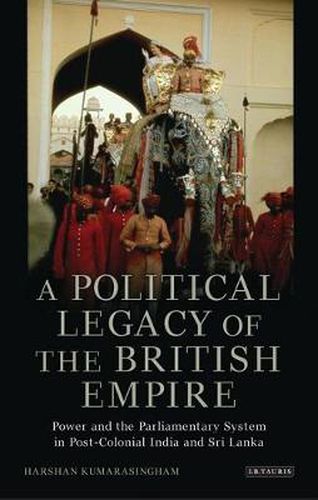Readings Newsletter
Become a Readings Member to make your shopping experience even easier.
Sign in or sign up for free!
You’re not far away from qualifying for FREE standard shipping within Australia
You’ve qualified for FREE standard shipping within Australia
The cart is loading…






As the British Empire receded, India and Sri Lanka, then known as Ceylon, preserved the ‘Westminster’ political system left by their colonial rulers. Both South Asian countries became independent in the late 1940s, though in widely differing styles: India fought a violent campaign of mass political activism and would become a republic, while Sri Lanka negotiated independence by a gentlemen’s agreement among the indigenous elite and remained a realm. Both nations adopted the ‘Westminster’ political system of their colonial master, producing results and reactions that would shape each country profoundly. Harshan Kumarasingham analyses the crucial first decade of independence, assessing the events, decisions and political environment of these ‘Eastminsters’. The impact of cultural conditions on the constitutional and political exercise of executive power gives an invaluable insight into how the ambiguous and flexible tenets of the Westminster system were interpreted in a local context, where the Western-educated elites were often at variance with the masses. The principles of cabinet government are explored to examine how successfully the purported checks and balances of the Westminster model operated in this crucial nation-building era, along with the critical role of political figures like Prime Ministers Nehru and Bandaranaike. This period also witnessed the early challenges of forging a modern state with major ethnic, linguistic, religious, class-based and regional tensions, which both India and Sri Lanka still wrestle with. The adaptable Westminster system was an essential element in the political development of these South Asian nations. Understanding the legacy and influence of the Westminster system allows the reader to fully understand the politics, institutions and society of today’s India and Sri Lanka.
$9.00 standard shipping within Australia
FREE standard shipping within Australia for orders over $100.00
Express & International shipping calculated at checkout
As the British Empire receded, India and Sri Lanka, then known as Ceylon, preserved the ‘Westminster’ political system left by their colonial rulers. Both South Asian countries became independent in the late 1940s, though in widely differing styles: India fought a violent campaign of mass political activism and would become a republic, while Sri Lanka negotiated independence by a gentlemen’s agreement among the indigenous elite and remained a realm. Both nations adopted the ‘Westminster’ political system of their colonial master, producing results and reactions that would shape each country profoundly. Harshan Kumarasingham analyses the crucial first decade of independence, assessing the events, decisions and political environment of these ‘Eastminsters’. The impact of cultural conditions on the constitutional and political exercise of executive power gives an invaluable insight into how the ambiguous and flexible tenets of the Westminster system were interpreted in a local context, where the Western-educated elites were often at variance with the masses. The principles of cabinet government are explored to examine how successfully the purported checks and balances of the Westminster model operated in this crucial nation-building era, along with the critical role of political figures like Prime Ministers Nehru and Bandaranaike. This period also witnessed the early challenges of forging a modern state with major ethnic, linguistic, religious, class-based and regional tensions, which both India and Sri Lanka still wrestle with. The adaptable Westminster system was an essential element in the political development of these South Asian nations. Understanding the legacy and influence of the Westminster system allows the reader to fully understand the politics, institutions and society of today’s India and Sri Lanka.